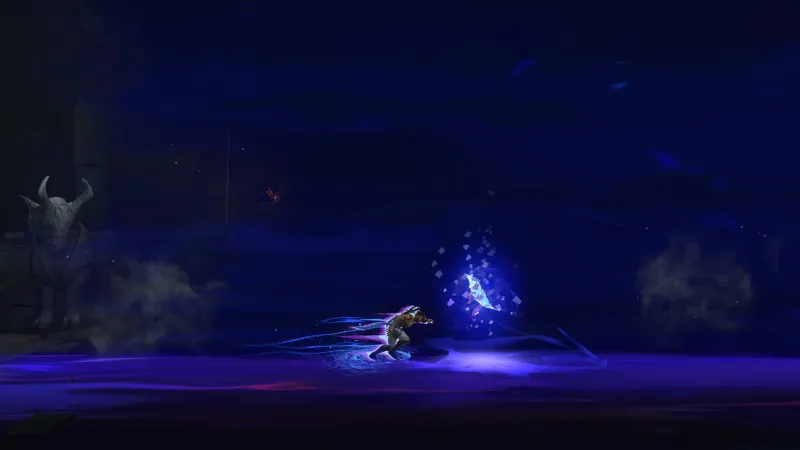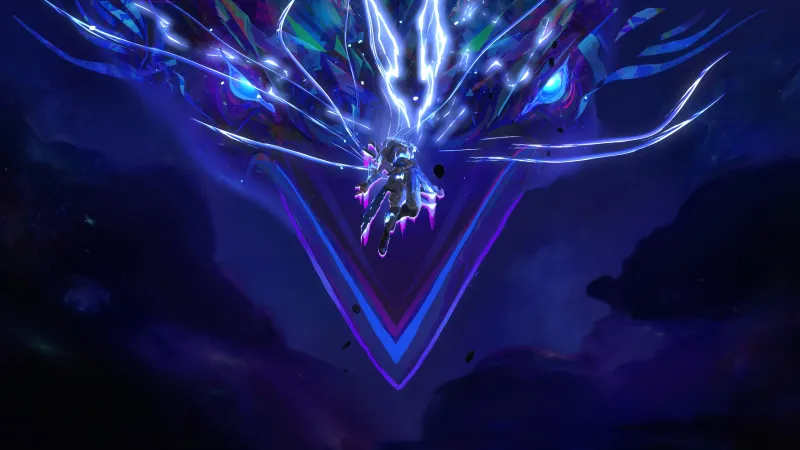The Prince of Persia series has a long and storied history going back decades, and I know none of it. The latest, Prince of Persia: The Lost Crown, from developer Ubisoft Montpellier, has me regretting that because if this game indicates what else awaits me in the franchise, I’ve clearly been missing out. The Lost Crown uses exhilarating platforming, a deep combat loop, and more to create a new Metroidvania classic. While I would like a more compelling story and a few tweaks to its systems, I struggled to put The Lost Crown down, taking my gameplay sessions into the late hours of the night. The Lost Crown is a fascinating and highly successful reemergence for the beloved series.
Notably, you do not play as the Prince of Persia in The Lost Crown; instead, you control Sargon, one of the seven Immortals, elite warriors who protect Persia, its Queen Thomyris, and the titular Prince Ghassan. However, Ghassan is kidnapped, sending the Immortals to Mount Qaf, where a labyrinthian adventure awaits Sargon and friends. The entire game takes place here, and by the end of my 21-hour adventure, I intimately knew its various biomes, secrets, shortcuts, and safe havens. One of my favorite parts of The Lost Crown was watching the foggy map of Mount Qaf reveal itself as a series of connected hallways, hidden chambers, and platforming puzzle playgrounds, in part because exploring all of it was an absolute treat. However, I would have liked a better fast-travel system, and sometimes there’s too much backtracking.
On current-gen consoles, The Lost Crown runs at a smooth-as-butter 120 frames per second, with a 4K resolution to boot. I’m not the biggest fan of its art style, which features gorgeous backdrops and painterly environments but playdough-esque characters, but it’s hard to deny how good it all looks in motion.
The Lost Crown stands tall, if not above in most instances, to some of the genre’s best. Combat starts simple, with a heavy emphasis on parrying, but grows into a deep system of extended ground attacks, air combos, projectile combo extenders, fast dash-kicks, and more. Amulets with special properties, like increased melee damage or frost resistance, for example, are hidden throughout, further adding to the customization of your Sargon. Athra Surges use special energy built up through combat and they can shift the weight of an encounter in an instant. And to round out the toolkit, Sargon collects time powers throughout the journey, which grant him powerful abilities for use in combat and exploration.

Like the various puzzles of Mount Qaf, every encounter presents its own predicament; I had to think fast and attack faster to take down new enemies with moves I hadn’t seen. And bosses are the combat’s crème de la crème. Each boss capped off the learning experience The Lost Crown put me through in the preceding hours, requiring the use of every tool in my arsenal (and every healing flask, too). I welcomed new boss fights, even after the fifth attempt on some of its most challenging.
The same can be said for its platforming. Quick respawning and instant resets carve out the worst parts of platformers, leaving a trial-and-error experience that remains highly rewarding throughout the game. A tough-as-nails platforming section that requires perfect precision might lead you to a rare currency that helps you strengthen Sargon’s swords, a special petal that increases his total health, or even a miniboss; I was never disappointed with what awaited me, a critical component to an enriching Metroidvania experience.
With a robust suite of accessibility options, like the ability to adjust the parry window timing, increase or decrease how much health you take on hits (and how much enemies take from yours, too), and portals that let you skip platforming sections, you can fine-tune The Lost Crown to be the experience you want. It’s a commendable effort and speaks to Ubisoft’s Montpellier’s innovation in this ever-growing genre. Being able to quickly attach a Memory Shard, which acts like an in-universe screenshot, to the massive map makes keeping track of what you can and can’t do at any moment a breeze. Coupled with various pins you can attach to the map, it’s a feature set I want in every game like this moving forward.

The story, despite some twists and turns that genuinely surprised me, fell into the background too often, and I struggled to understand why I was going here or there beyond the objective marker on my screen. But this and its few other issues did little to hamper my enjoyment.
The Lost Crown makes it hard to put the controller down, constantly urging players to follow its paths just a little further. Following its persistent pull to explore more of Mount Qaf is easy, though, thanks to how good it feels to do so. Between its first-rate platforming and engaging combat and progression, The Lost Crown’s various parts coalesce into a sublime loop. Gameplay is king, and this Prince of Persia understands that.
